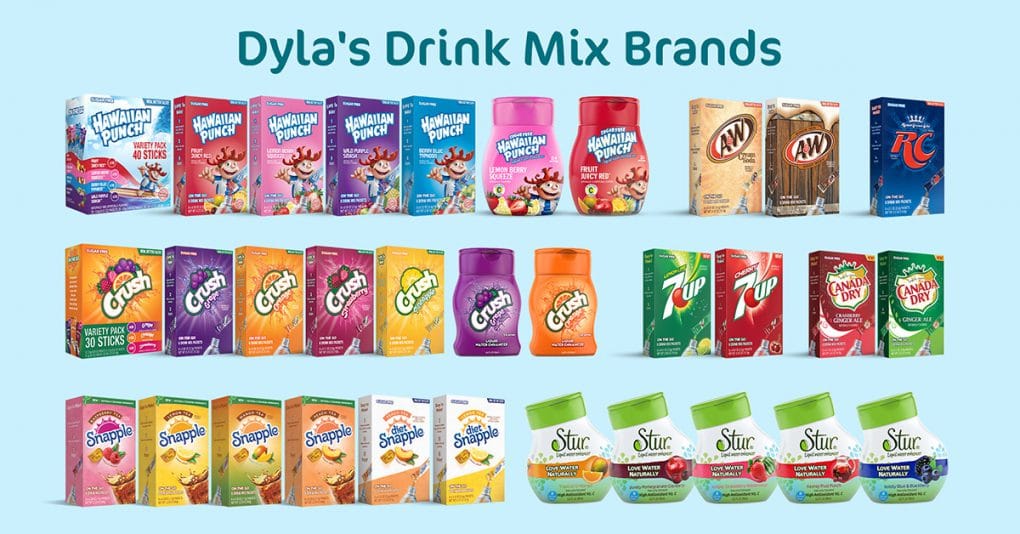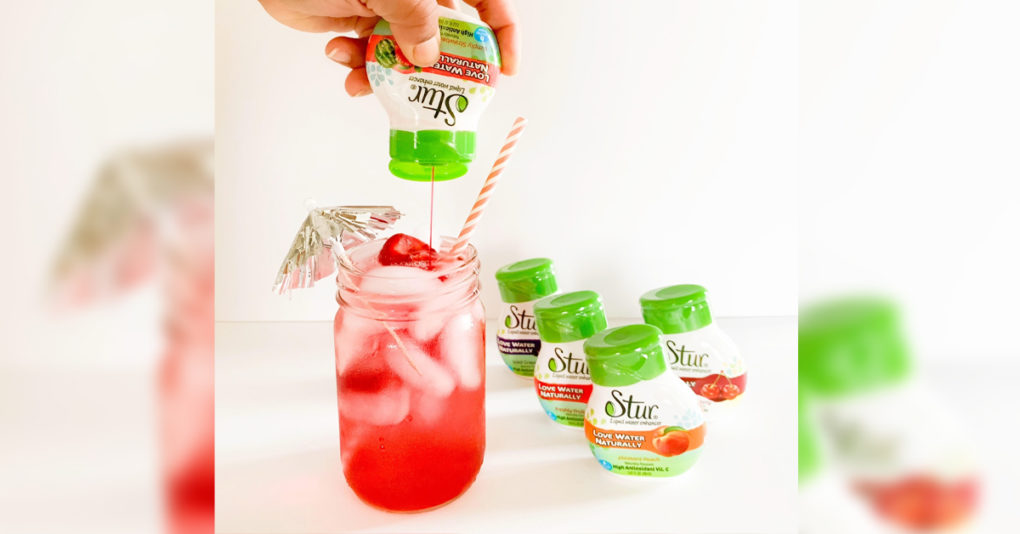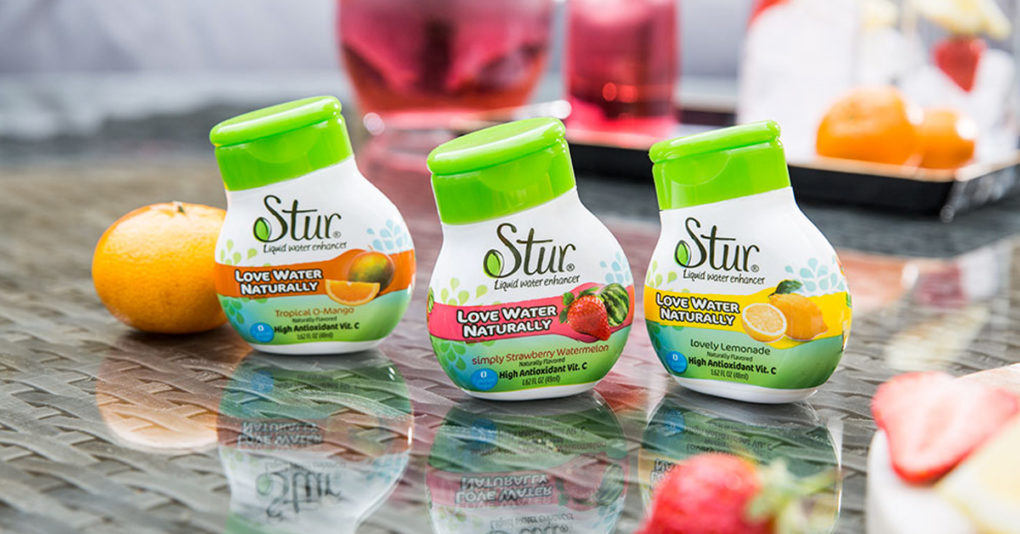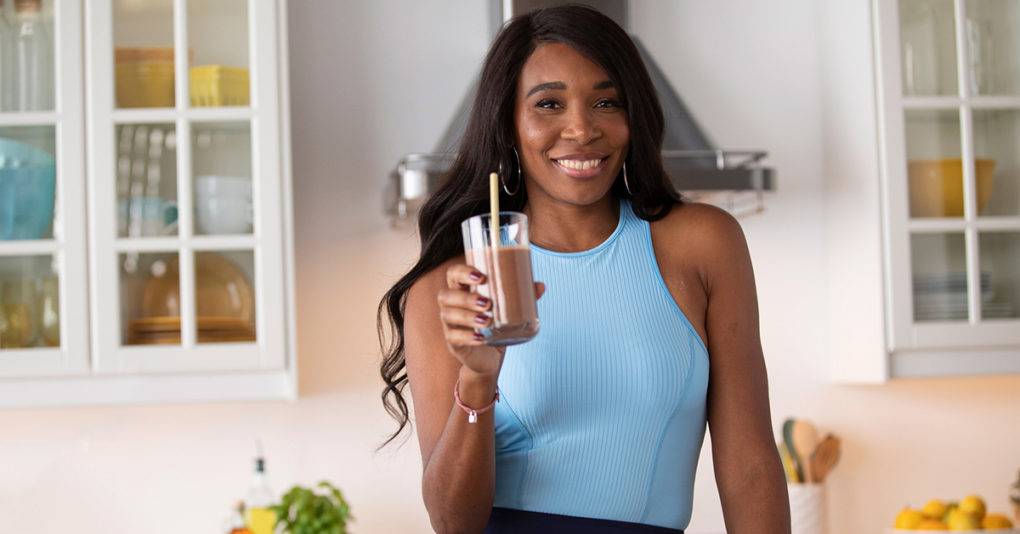Dyla Brands’ flagship drink mixes have often flown under the radar, despite maintaining sizable and steady growth throughout its 12-year history. Now, the company, which owns liquid mix brand Stur and is the exclusive manufacturer for the powdered forms of Keurig Dr Pepper’s (KDP) portfolio brands, is ready for the spotlight.
Founded in 2012, Dyla has seen revenue increase by over $30 million in the past year, “well over” the $100 million mark, as it has sold “over 1.5 billion liquid and powder servings of drink mix,” founder and CEO Neel Premkumar told BevNET this week.
The company, which also makes Venus Williams’ Happy Viking protein line – and, formerly, coffee shot line FORTO (more on that later) – had historically kept its marketing expenses low, spending just 5% of sales revenue on advertising. But after the emergence of social media trend #WaterTok last year, Dyla is taking a more aggressive approach, recruiting a slate of social media influencers and setting aside $10 million for Stur’s television marketing campaign set to launch this spring.
In 2022, Premkumar said the company began to explore TikTok as a potential platform to raise brand awareness, and by January 2023 it caught wind of the #WaterTok phenomenon – a trend in which consumers and influencers share tips and reviews for various drink mixes, such as recipes where different mix flavors or brands can be blended together.
Anytime a post about a Dyla product, such as Crush or Hawaiian Punch powder mixes, went viral, sales in Walmart and other major retailers spiked.
“We grew [revenue] over $30 million last year purely because of this,” Premkumar said.
Last winter, the company messaged every #WaterTok creator it could find, he said, sending out around 100,000 packages of product samples. Around 30% of those creators would go on to make posts about the products, and the results paid dividends.
Mixes on the Rise
The drink mix category – dominated by large brands like Kraft, Unilever and PepsiCo – has seen significant growth and an influx of innovation and new product launches over the past several years. Circana reported retail dollar sales in U.S. MULO and c-store accounts for powdered sports drink mixes was up 51.8% in the 52-weeks ending December 31, 2023 to around $771 million, while liquid drink enhancers grew 2.6% to $654.6 million and energy drink mixes were up 34.6% to around $222 million.
The influx of new mixes from RTD brands (see PRIME, Liquid Death) has not gone unnoticed, either.
“It’s become an interesting thing where you see immediately when someone launches an RTD, they also launch a companion drink mix along with it, which was not [always] the case, it was not a sexy category 10 years ago,” Premkumar said.
Retail dollar sales of Stur’s liquid fruit drink mixes were up 3% to around $14.9 million in the 52-week period ending Dec. 31, according to Circana, while the brand’s liquid sports drink mixes accounted for about $300,000 in sales. However, Premkumar noted that data only reflects a portion of the total business for the brand; he estimated total retail sales for Stur were around $25 million last year and said that is only half of the business – around 50% of Stur’s revenue comes from online ecommerce sales.
Dyla is now adding more licensed offerings to its powders portfolio, including Dole and Jelly Belly, as well as expanding its presence in Walmart and Target. Premkumar said he expects distribution to “expand pretty meaningfully this year,” as it pushes hard on innovation.
For Stur, the company is also introducing new functional varieties, including an electrolyte-enhanced version of the mix to boost hydration.

Innovation Stations
Dyla is now preparing to open a new manufacturing plant and “Flavor Lab” facility in Edison, New Jersey in April, which will be capable of producing liquid and powder drink mixes with a capacity of “several thousand bottles a day,” he said. The facility, under 10,000 sq. ft. in size, will primarily be used for limited edition and experimental flavors that can be developed and manufactured rapidly, with the ultimate goal of having an LTO Stur flavor launched “every other week” by mid-year.
Like fellow independent drink mix maker Jel-Sert, which launched new Wyler’s flavors intended to appeal to social media users earlier this year, Dyla is also tailoring much of its new innovation around TikTok. Premkumar said the company intends to work directly with influencers to create unique flavors requested by creators, while also reacting in real time to online trends. For example, the company recently created an LTO flavor around the “Sleepy Girl Mocktail” trend – a blend of cherry, magnesium and soda water that became popular online this winter.
“We can move and react quickly,” he said. “If somebody came up with a concept or we saw something in the market, we could actually physically turn it from the start of an idea to [product] in the market within about three weeks.”
As well, the Edison facility will have a fulfillment center that can be used for shipping D2C purchases.
Beyond the Mixes
In addition, Dyla continues to build out Happy Viking, a protein mix line created by tennis superstar Venus Williams. Premkumar said the brand, which launched in 2020, has shifted away from RTD offerings to focus entirely on powders, and has consistently doubled sales year-over-year, reaching around $10 million in 2023. He added that the brand is primarily sold online, through QVC television shopping network, but with some limited retail presence, including select Kroger locations.
As Dyla pursues new opportunities, it is leaving others behind. Introduced in 2016, coffee energy shot FORTO gained quick retail placements around the country with unique packaging: a 2 oz. miniature takeout coffee cup. The brand was largely financed by the revenue generated by Stur, but despite strong interest from retailers, Premkumar said the brand struggled to connect with consumers at a price point that could be profitable.
“What we ended up finding out after a lot of time and money was that consumers anchored the product value into coffee,” he said. “So they were like, ‘Alright, it’s like a 2 oz. cup of coffee. I would go to 7-Eleven and I would pay between $1 and $2 for a 16 oz. cup of coffee that kind of looks the same except much bigger. So, for a 2 oz. concentrated cup of coffee, I would pay about $1 max.’”
While the brand had “really high elasticity” and pull-through “flew” when the shots were marked down to a $0.99 value price, it couldn’t generate positive cash flow at that price point and the company would lose money on each shot sold.
Dyla finally ended production of the brand around late 2022, Premkumar said, but the company had been aware of the issues for longer. More recently, FORTO was taken over by an unidentified co-packer. Although Dyla still maintains IP rights to the brand, at the moment it is not being manufactured by anyone.
“It’s funny, because … we got really well known for FORTO, and yet we were using all of the profits from Stur and our drink mix business to subsidize it,” he said. “We have this really great, drink mix business that was like, ‘What the hell? Why are we losing money subsidizing this business?’ Let’s try to get out of it and let’s focus on what’s really growing and spend more money behind that.”


